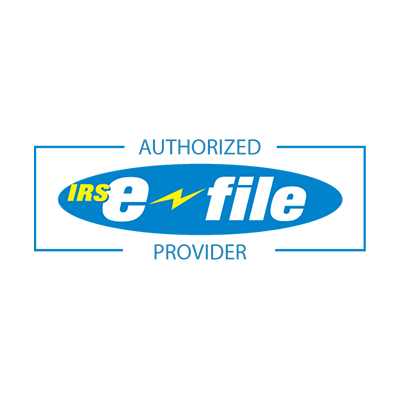The world of tax preparation for truck drivers can be a labyrinth, given the unique employment circumstances under which they work. Some drivers are employees of a trucking company (company drivers), while others are independent owner operators. The tax responsibilities and potential deductions differ greatly between these two groups.
This article breaks down how tax preparation for truck drivers looks, whether you’re a company driver or an owner operator. If you’re a company driver, you will receive a W2 form you can use to file your tax returns and you may be able to claim deductions for work-related expenses such as uniforms or certain travel expenses. An owner operator, by comparison, has more responsibility when it comes to tax preparation. As independent contractors, they must pay their own federal and state taxes, but they can also deduct business expenses for things like fuel, maintenance, and insurance.
Tax Preparation for Company Drivers
For company drivers, the trucking company automatically deducts taxes, including Social Security and Medicare from their paychecks. Company drivers receive their earnings and tax information through a W2 form provided by their employers, which details income, withheld taxes, and social security contributions for the fiscal year. The W2 form serves as the primary document for company drivers when filing their income tax returns. This typically makes tax preparation for truck drivers who are company drivers more streamlined compared to owner operators as most of the information needed for filing is found on the W2 form.
Beyond this, company drivers can claim deductions for various work-related expenses, including uniforms and specific travel costs. Company drivers must maintain thorough records of these expenses to claim the deductions on their taxes. It is essential to understand which expenses qualify for deductions to maximize potential tax savings. For example, company drivers who must purchase their uniform out-of-pocket or company drivers who incur out-of-pocket expenses for overnight parking during long-haul trips (and are not reimbursed by the company) may be able to claim these expenses as deductions.
Tax Responsibilities of Owner Operators
Tax preparation for truck drivers who are owner operators is more complex than it is for company drivers. Because they are viewed as independent contractors, they bear the responsibility of paying their own federal and state taxes, since they are not deducted automatically from their pay. This process requires better organization, more detailed record-keeping and a deeper understanding of the tax law compared to company drivers.
Owner operators are also subject to self-employment taxes, including Social Security and Medicare contributions, which are estimated at a rate of 15.3% (12.4% is for Social Security and 2.9% for Medicare). It is wise for owner operators to calculate what is needed for these contributions along with anticipated income taxes and set aside this portion of their income throughout the fiscal year.
Although this might seem daunting, there is a trade-off; owner operators can claim a broader range of deductions compared to company drivers.
Deductible Business Expenses for Owner Operators
A significant benefit for owner operators is the ability to deduct numerous business expenses from their taxable income including, but not limited to:
- Fuel
- Tires
- Batteries
- Repairs
- Parts
- Maintenance
- Loan Interest
- Insurance costs
- Union Dues and Trucking Association Fees
- Cell Phone Plans
- Vehicle Costs and Depreciation
- Products and Necessities for Travel
- Computer and Internet Expenses
- Trade-Related Tools and Equipment
- Industry-Related Subscriptions
These deductions, provided that they are business-related, are listed on a Schedule C during the filing process, and can lower the overall taxable income, potentially resulting in substantial tax savings. Keeping meticulous records of these expenses throughout the year simplifies and streamlines tax preparation for truck drivers who are owner operators. Otherwise, they will have to dig through records to track down this information, which can be a frustrating task if they fail to document, but it also prepares them for potential audits from the IRS (and nobody wants to be caught off guard in that scenario)!
Navigating Tax Preparation as a Truck Driver
Whether a company driver or an owner operator, all truck drivers can benefit from professional help, such as tax advisors or dedicated tax software, both of which can help to ensure accurate filing and maximize deductions. Tax professionals know the ins and outs of tax laws that govern the industry and can offer personalized advice based on a truck driver’s specific situation. Tax software can automate many of the complex calculations involved in preparing tax returns – not to mention, they can ensure compliance with the ever-changing tax laws.
However, drivers must be aware of common pitfalls such as inaccurately tracking expenses, misunderstanding deductible expenses, or missing filing deadlines, as these mistakes can lead to penalties or missed deduction opportunities. Remember: professional tax advisors are the busiest just before tax deadlines, so be sure to plan accordingly and set an appointment in advance. Tax preparation for truck drivers does not have to be a solo effort. Professional help can be just a phone call or a click of the mouse away, helping you to rest assured that everything has been filed properly and in your favor.
Simplify Tax Filing With i2290
While it has its own unique considerations and challenges such as remembering to pay the Heavy Vehicle Use Tax (HVUT), tax preparation for truck drivers is not much different from tax preparation for virtually anyone. Tax deadlines can creep up out of nowhere and catch everyone off guard; plus, few people look forward to preparing their taxes. With so much to keep track of, give yourself some peace of mind by creating an account with i2290 today. Let us file the HVUT for you, grant you a stamped Schedule 1, which is needed to register your vehicle, and make tax preparation a breeze!
Special note: This article is for general purposes, and is not intended to provide, and should not be relied on for tax, legal, investment, or accounting advice. The best way to ensure you’re properly filing for a refund or credit and paying appropriate taxes is by following IRS regulations and consulting with a tax professional.


